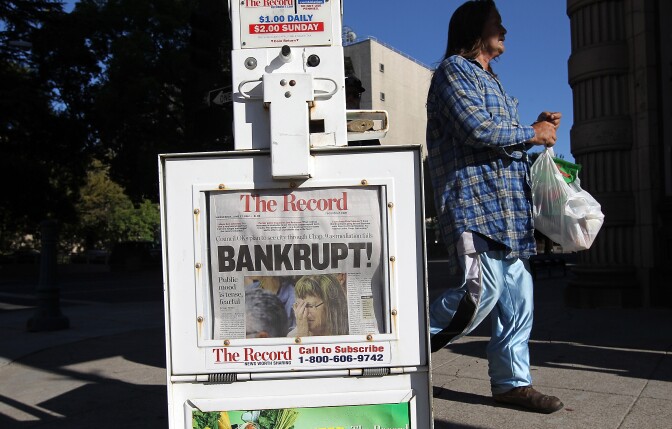In a landmark blow to CalPERS, a federal bankruptcy judge ruled yesterday that the bankrupt city of Stockton can legally reduce its pension obligations to California's massive public pension system and use that money to pay other creditors.
Pension obligations have long been the third rail of city bankruptcy negotiations and yesterday’s finding could have huge implications for other debt-stressed California cities like San Bernardino. Public employee unions have consistently claimed that bankrupt cities have to make full contributions to pensions, even if they can’t pay their other debts. But Judge Christopher Klein ruled that cities’ future pension payments need not be treated any differently than other financial obligations, like those to Franklin Templeton Investments, another Stockton creditor. Yesterday’s ruling comes about 9 months after a bankruptcy judge in Detroit, the nation's largest city to declare bankruptcy, ruled that the city could reduce what it owed in pensions even though the Michigan state constitution expressly protects pension payments. In June, employees voted to approve their own pension benefit cuts.
Will we see more of this in the future? Should cities be obligated to honor promises they made to public unions even when they get into financial trouble, or should they have the flexibility to change those agreements? What could be the potential impact of yesterday’s ruling on public employees and city services?
Guests:
Marcia Fritz, President of the California Foundation for Fiscal Responsibility, a nonprofit organization that focuses on public employee retirement benefit issues in California
Terry Brennand, a lobbyist for Service Employees International Union (SEIU)



